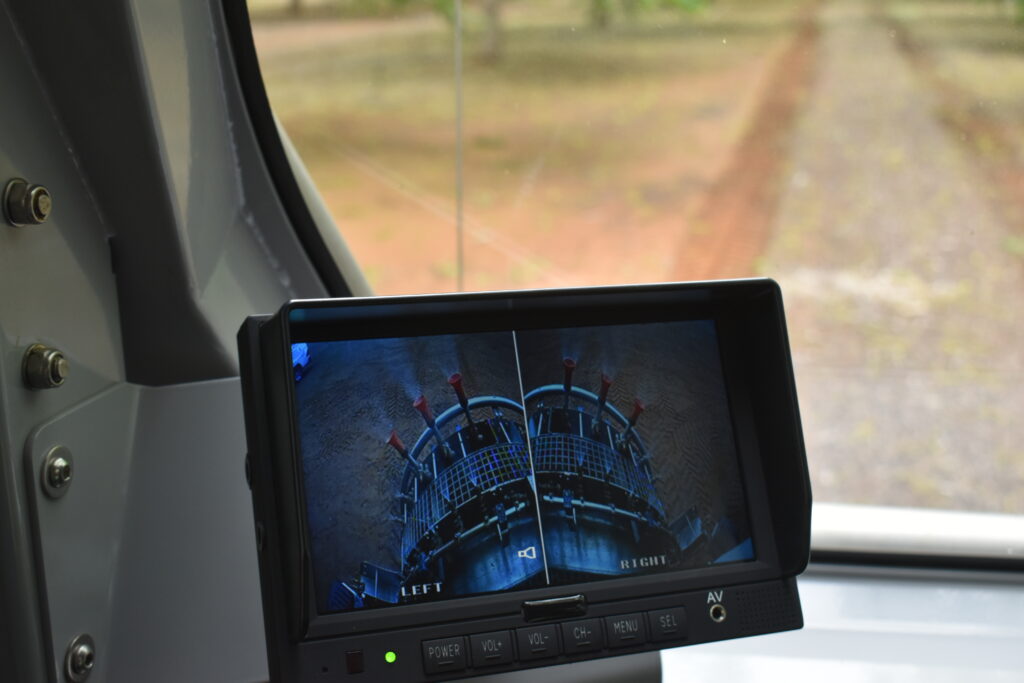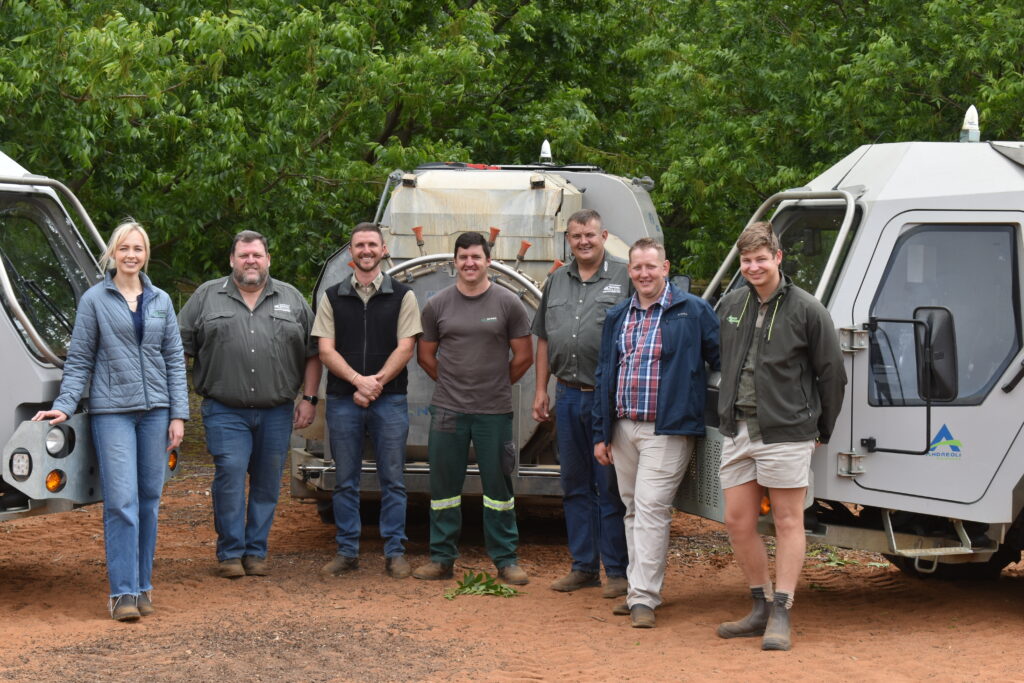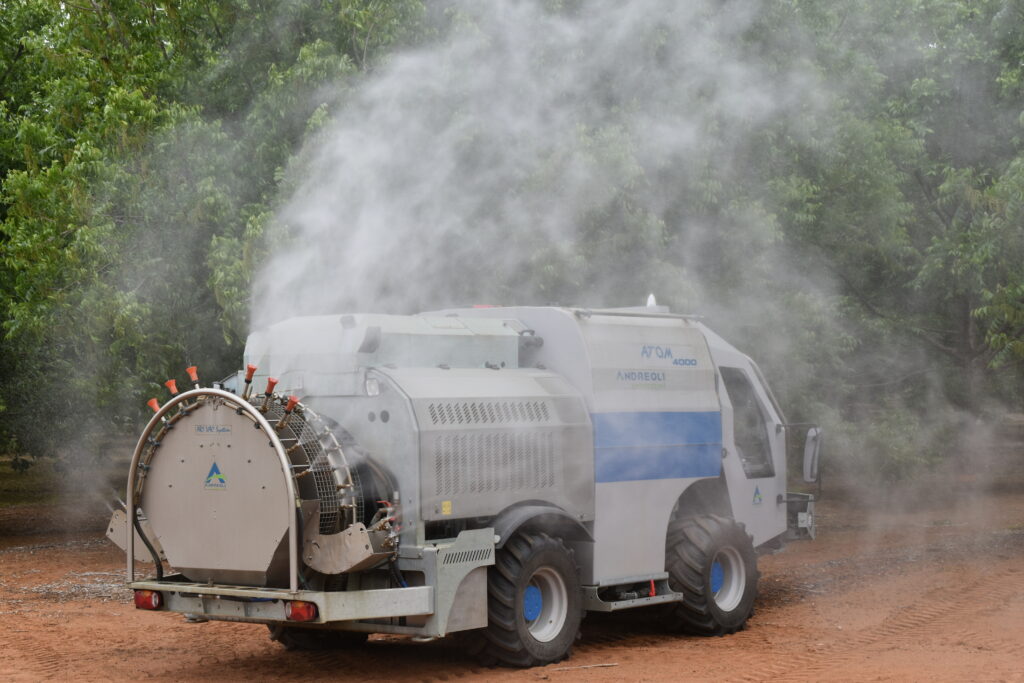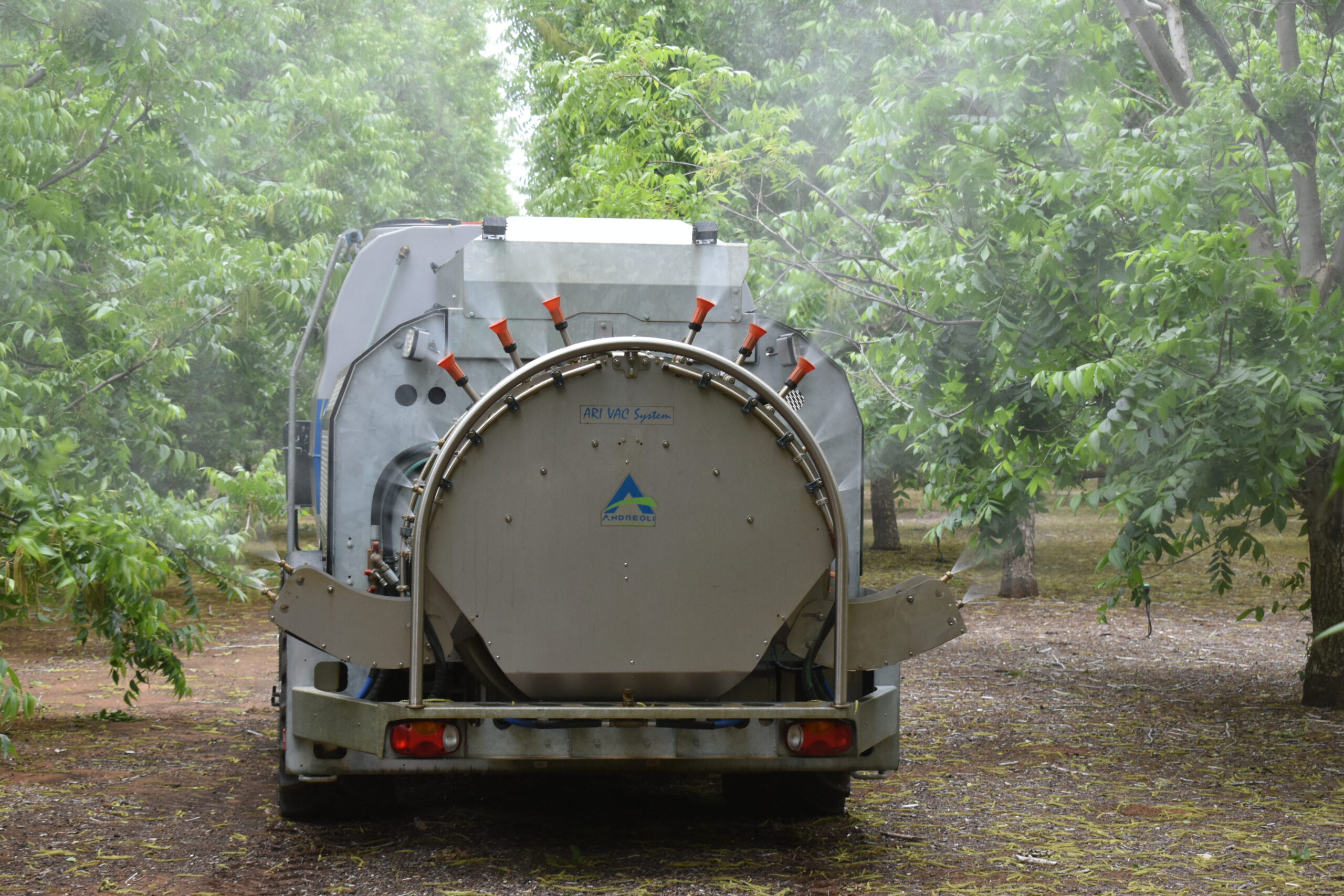Pecan nut production can be rewarding, but then things must be done right. The capital outlay for pecan nut farming is high and you have to wait a long time before you get anything back. A pecan nut tree can take eight to ten years to reach maturity and start producing to its full potential.
But when done right, the yield is high, and it can continue to bear fruit for 100 years.
Burger Boerdery in the Hartswater district in South Africa has cultivated a winning recipe for pecan nut farming over the years. They grow pecan nut trees on 650 ha, and they believe that to farm profitably and sustainably with pecan nuts you need to stay ahead of the latest technology, which ensures optimal efficiency and productivity and at the same time increases your yield.
Joppie Nel is responsible for the spraying in the pecan orchards at Burger Boerdery. He says: “Previously we had eight trailing sprayers from another make, which meant that eight tractors with eight drivers had to be deployed and at least four tractors and drivers driving the tanks with spray around to keep the sprayers full. “

The operator controls and monitors the spraying from the comfort of the cab.
Burger Boerdery’s expansion required them to complete more spraying work in a shorter period of time. With their previous eight trailed sprayers, it became too labour intensive, less efficient and time consuming. They looked for a better solution … and found it in Jupidex’s self-propelled Andreoli sprayers.
Joppie says: “Jupidex came to demonstrate their 4 000-litre Atom self-propelled Andreoli sprayers here on the farm and this was definitely the decisive factor that convinced us to make the move. In farming, time is money, and these self-propelled Andreoli sprayers were the solution to all our challenges.”
“Since these three sprayers arrived on the farm in August 2021, they have hardly stood still, but perform lots of wonderful work,” says Joppie.
The sprayers are mainly used for the application of foliar feeding and fertiliser in the pecan orchards.

The Jupidex team, Izél Grobbelaar, Arthur Bezuidenhout, Christopher Laubscher, JC Blignaut and Jacques Le Roux, with Joppie Nel and Andrew Brink from Burger Boerdery.
Joppie tells more: “The spraying season usually starts in August after harvest time. We first spray copper and then, until January, we give foliar feeding to the trees. We do about 8 ha per hour with each of the sprayers. Two of them already have between 700 and 800 hours on the clock. You can work with the sprayers at a speed of 6 (or even lower) to 11 km per hour; we usually work at 9 km per hour.
“With these sprayers we save an incredible amount of time and labour. We spray approximately 80 ha per day with two sprayers, over a period of six hours,” he adds.
“The sprayer is very technologically friendly, and it calibrates itself – so if you drive faster, it sprays more, and if you drive slower, it sprays less. One feature that stands out to me about the sprayer is the hydraulics. Everything about the sprayer works hydraulically and is controlled from the cab. The cab is also very comfortable, which makes the operator’s life easier. There is enough space, and it is even equipped with air conditioning, a sound system, an air-adjustable seat and a seat for a passenger, should someone want to keep you company,” says Joppie with satisfaction.
He adds: “From the cabin you can see if a sprinkler is blocked and how full your tank is. The tank holds 4 000 litres, with which we spray 8 ha. Another thing that stands out about these sprayers is how high they can spray, which is very beneficial for us when we apply foliar feeding. This ensures that even the highest parts of the trees are reached and sprayed.
“We are very satisfied with the service we receive from the Jupidex team. When we have a problem or a question, they come to the farm to solve it in time. When we need parts, they jump in to get them to us as soon as possible,” Joppie concludes.

Burger Boerdery are the proud and satisfied owners of three self-propelled 4 000-litre Atom Andreoli sprayers that help their pecan farming move forward.
With Jupidex’s spraying solutions at Burger Boerdery’s side, pecan farming is not such a hard nut to crack! For more information on the spraying solutions that Jupidex offers to farmers, visit their website at https://www.jupidex.co.za/ or call (+27)33-386-3574 for more information.









